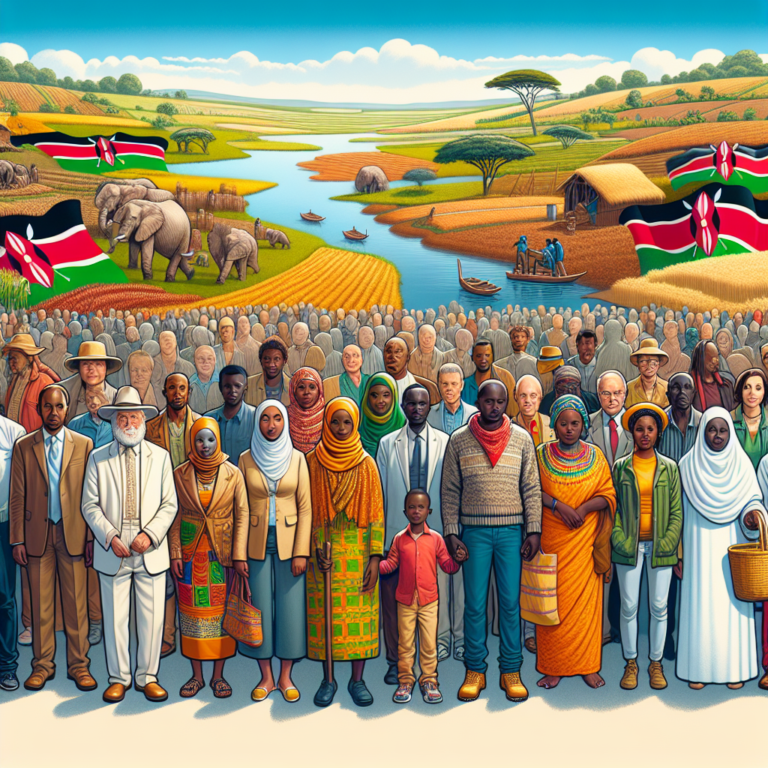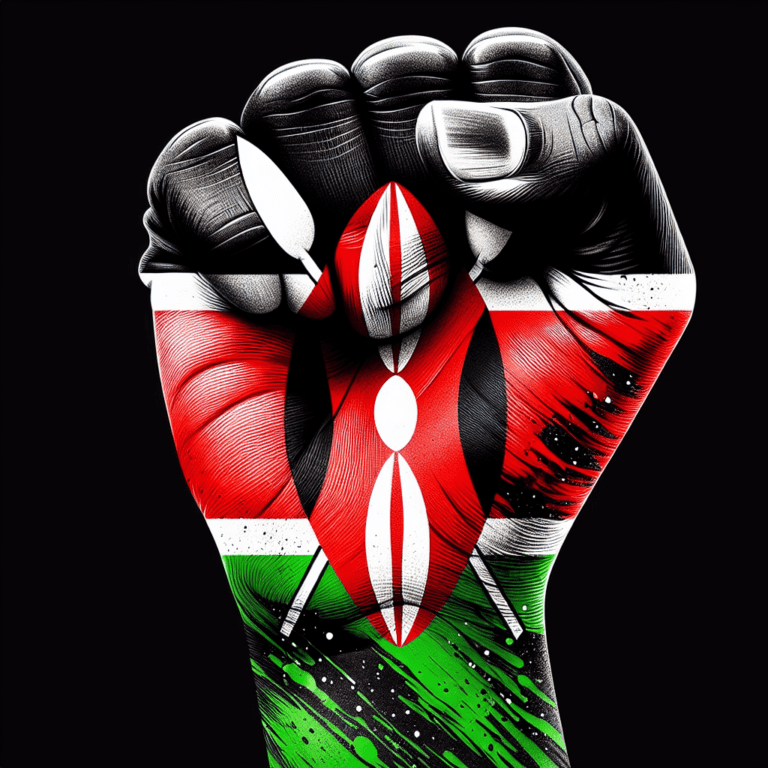What Was The Impact Of The 2007-2008 Post-election Violence In Kenya?
In the aftermath of the 2007-2008 post-election violence in Kenya, the country experienced profound and lasting effects. From loss of life and displacement of communities to economic setbacks and tarnished international reputation, the impact of this period of unrest was extensive. Today, as Kenya looks back on that dark chapter in its history and strives to move forward, it is important to examine the repercussions of those challenging times in order to learn from the past and build a more peaceful future.
Political Impact
The 2007-2008 post-election violence in Kenya had a profound impact on the political landscape of the country. The violence resulted in a change in government leadership, as the disputed presidential election led to widespread protests and calls for the resignation of the incumbent president. Eventually, a power-sharing agreement was reached, and a coalition government was formed to ensure stability and address the deep divisions within the country.
The creation of a coalition government was a significant development in Kenya’s political history. It brought together rival political parties that had been at odds with each other during the election period, with the aim of fostering unity and inclusivity. This move, while initially seen as a positive step towards reconciliation, also presented challenges in terms of decision-making and governance, as different factions within the coalition often clashed over policy issues and priorities.
The post-election violence also had a lasting impact on the political parties in Kenya. The violence exposed deep divisions along ethnic lines, leading to increased mistrust and polarization among different political groups. Many parties faced internal challenges as members disagreed on how to address the ethnic tensions and reconcile with other parties. The violence also served as a wake-up call for political parties to reevaluate their strategies and prioritize the interests of the nation over ethnic or personal agendas.
Furthermore, the violence eroded the trust that the Kenyan people had in their political institutions. The disputed election and the subsequent violence raised questions about the fairness and integrity of the electoral process, leading to a decrease in confidence in the government and electoral bodies. This loss of trust in political institutions undermined the democratic foundation of the country and highlighted the need for reforms to ensure transparency, accountability, and the protection of citizens’ rights in future elections.
Ethnic Relations
The 2007-2008 post-election violence in Kenya had a devastating impact on ethnic relations within the country. The disputed election results, coupled with deep-rooted historical grievances and political manipulation, heightened tensions between different ethnic groups. As a result, the violence escalated quickly, leading to widespread acts of violence, discrimination, and hate crimes.
The increased ethnic tensions during this period resulted in a wave of violence and discrimination against minority ethnic groups. People were targeted based on their ethnic identity, leading to the displacement of thousands of individuals and families. The violence created a humanitarian crisis, with internally displaced persons (IDPs) seeking shelter in camps and facing numerous challenges, including inadequate access to food, water, and healthcare.
Economic Consequences
The 2007-2008 post-election violence had severe economic consequences for Kenya. The country experienced a decline in GDP growth, as the violence disrupted economic activities and investor confidence. Many businesses were forced to close temporarily or permanently, leading to job losses and income reduction for a significant portion of the population.
The damage to infrastructure was another economic consequence of the violence. Public infrastructure such as roads, schools, and hospitals were destroyed or severely damaged, requiring substantial investments in reconstruction and repair. The overall economic development of the country was hampered, as resources that could have been used for productive purposes had to be diverted towards rebuilding efforts instead.
Social Disruptions
The post-election violence in Kenya resulted in significant social disruptions. One of the most tragic consequences was the loss of lives, as the violence claimed thousands of innocent lives and left many others injured. Families were torn apart, and communities were fractured as a result of the violence, leading to a disintegration of social cohesion.
Communities that had lived together peacefully for generations became divided along ethnic lines, with suspicion and mistrust replacing cooperation and harmony. The violence also had a severe impact on food security, as agricultural activities were disrupted, and people were forced to flee their homes, leaving behind their sources of livelihood. This led to widespread food insecurity, with many people facing hunger and malnutrition.
The education system also suffered significant disruptions during this period. Schools were closed or used as temporary shelters for displaced persons, depriving children of their right to education. Many students were unable to complete their studies, leading to long-term educational gaps and limited opportunities for social and economic advancement.
Justice and Reconciliation
In the aftermath of the 2007-2008 post-election violence, efforts were made to achieve justice and reconciliation in Kenya. The International Criminal Court (ICC) launched investigations into the perpetrators of the violence, aiming to hold them accountable for their actions. This marked a significant step towards ending impunity and ensuring that those responsible for the crimes committed during the violence would face justice.
At the national level, various reconciliation initiatives were undertaken to promote healing and unity among communities affected by the violence. Truth and reconciliation commissions were established, providing platforms for victims and perpetrators to share their experiences and seek reconciliation. These efforts aimed to address the root causes of the violence and prevent future conflicts by promoting dialogue, understanding, and forgiveness.
Throughout this period, there were arrests and trials of individuals suspected of perpetrating violence or inciting hatred. These legal processes played a crucial role in establishing the rule of law and demonstrating the commitment of the Kenyan government to bring justice to those affected by the violence.
Human Rights Violations
The 2007-2008 post-election violence in Kenya was accompanied by widespread human rights violations. There were reports of excessive use of force by security forces, who were deployed to quell protests and maintain law and order. These acts of violence resulted in the loss of innocent lives and caused immense suffering.
Sexual violence and gender-based crimes were also prevalent during this period. Women and girls were particularly vulnerable, with many being subjected to rape, sexual assault, and other forms of gender-based violence. The psychological and physical trauma inflicted on the victims was devastating, leaving long-lasting scars on individuals and communities.
The violence had a significant impact on the rights of women and children. Many women lost their homes, livelihoods, and loved ones, forcing them into vulnerable situations. Children were also affected, with disrupted education and exposure to violence leading to long-term psychological and emotional consequences. Protecting and promoting the rights of women and children became an urgent priority in the post-violence recovery process.
Media and Information
The role of the media during the 2007-2008 post-election violence in Kenya was both critical and controversial. While the media played a crucial role in disseminating information to the public, they were also implicated in promoting hate speech and fueling the violence. Some media outlets were accused of biased reporting, spreading inflammatory messages, and exacerbating ethnic tensions.
At the same time, the government imposed restrictions on media freedom, leading to censorship and limited access to information. This further exacerbated the tense environment, as the public’s right to information was curtailed, and dissenting voices were silenced. Balancing media freedom with responsible journalism and ethical reporting became crucial in promoting peace, reconciliation, and constructive dialogue.
International Relations
The post-election violence in Kenya had significant implications for the country’s international relations. The violence attracted international attention, and many donors reduced their aid to Kenya, citing concerns about the political and security situation. The reduction in donor aid had a direct impact on the country’s development programs, as resources for crucial projects were no longer available.
The violence also strained diplomatic relations between Kenya and other countries. Some nations expressed their concerns about the political instability and human rights violations, leading to strained diplomatic ties. The international community called for accountability and justice, putting pressure on the Kenyan government to address the root causes of the violence and ensure the protection of human rights.
Security Sector Reform
In the aftermath of the post-election violence, there was a pressing need for security sector reform in Kenya. This involved reforms aimed at ensuring that the police and military forces were impartial, professional, and accountable to the people. Measures were taken to strengthen the rule of law, promote human rights, and prevent future acts of violence.
Promoting peace and conflict resolution also became a central focus of security sector reform. Efforts were made to foster dialogue and mediation between different communities, with the aim of resolving disputes peacefully and preventing the escalation of conflicts. Disarmament programs were also implemented to dismantle and disarm militia groups that had been involved in the violence, promoting stability and security.
Lessons Learned
The 2007-2008 post-election violence in Kenya served as a wake-up call and highlighted several important lessons for the country. First and foremost, the importance of electoral reforms was recognized. Steps were taken to enhance the transparency, credibility, and fairness of the electoral process, ensuring that future elections would be conducted in a free and fair manner.
Addressing and bridging ethnic divisions was another crucial lesson learned. Efforts were made to promote inclusivity, national unity, and diversity, recognizing that a divided society is prone to violent conflict. Policies were implemented to promote equal opportunities, protect minority rights, and combat discrimination, with the aim of fostering a sense of belonging and shared identity among all Kenyan citizens.
Building strong institutions was also identified as a key lesson. Strengthening the judiciary, electoral bodies, and security forces became a priority, as these institutions play a crucial role in upholding the rule of law, promoting accountability, and ensuring stability. Investing in the capacity and independence of these institutions was seen as essential for preventing future crises and safeguarding democracy in Kenya.
In conclusion, the 2007-2008 post-election violence in Kenya had far-reaching impacts on various aspects of the country. From the political landscape to ethnic relations, the economy, social fabric, justice and reconciliation efforts, human rights, media and information, international relations, security sector reform, and lessons learned, the consequences were extensive and profound. It is crucial to acknowledge the gravity of these impacts and work towards building a peaceful, inclusive, and prosperous future for Kenya.







